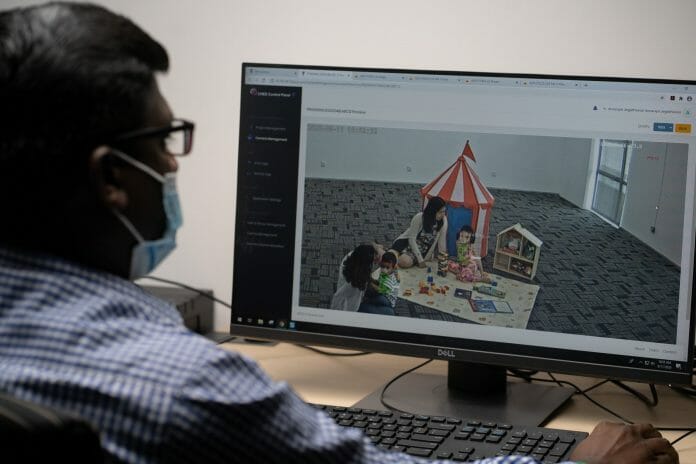Taylor’s University has officially launched its new lab facility, Taylor’s Centre for Human Excellence and Development (CHED), a first-of-its-kind research and therapy centre in Malaysia and Southeast Asia.
The centre, which operates under the Taylor’s School of Liberal Arts and Sciences (SLAS), intends to revolutionise study and applied research in the area of psychology and behavioural sciences in Malaysia to augment positive social progress in the country.
“The establishment of Taylor’s University Centre for Human Excellence and Development is an excellent step in the right direction to address rising mental health concerns in Malaysia.
I hope to see a proliferation of research in behavioural science, psychology, and other aspects of social sciences with the commencement of this centre,” Deputy Minister of Health, Dr. Noor Azmi Ghazali said in a video recording during the virtual launch.
The launch of CHED enables academics and researchers to embark on advanced studies in behavioural sciences across disciplines including psychology, food studies, education, business and social sciences.
As such, the centre integrates research through the Socio-Behavioral Lab with community welfare and mental health through the Clinical Centre.
The Socio-Behavioral Lab aims to provide a multi-functional space to advance the research, innovations, and interventions in multi-disciplinary areas of physical, cognitive, emotional, and social contexts of behaviour.
It is a platform that allows for a flexible space to be adapted to various functions and allows for research and interventions to be carried out in an innovative setting. It leverages an extensive range of advanced Artificial Intelligent technology components such as face-tracking cameras, brain scanners, and virtual reality equipment that tracks facial and eye movements to identify emotions in facial features.
The emotional recognition software is proprietary to Taylor’s University and will enable its students, researchers, and psychologists to conduct live research on human interactions.
The Clinical Centre is a therapeutic space and includes four individual therapy rooms, a family room, and a group therapy centre. It is tailored predominantly as a training and skill development centre for students of the Master and Undergraduate programmes who seek to develop therapeutic skills.
It is equipped with a comprehensive developmental assessment and mental health testing tools to support therapeutic interventions by clinical and counselling practitioners.
The centre, which is in addition to the current University Counselling facilities, will be utilised by Taylor’s staff, students, and external therapists to conduct counselling, therapy, training, workshops, and assessments.
“The establishment of Taylor’s Centre for Human Excellence and Development aims to provide the industry with an ecosystem that can empower the next frontier of psychology studies in Malaysia.
The availability of an advanced research facility that is equipped with innovative technologies in Malaysia would help scientists, institutions, policymakers and governments understand human nature better through data and insights, which would positively impact future plans and policies,” Professor Pradeep Nair, Deputy Vice Chancellor and Chief Academic Officer of Taylor’s University said.
Currently, Taylor’s Centre for Human Excellence and Development is supporting a research project on Prader-Willi Syndrome which has received a grant under the Hubert Curien Partnership France-Malaysia Hibiscus (PHC Hibiscus).
The project is led by prominent Taylor’s University lecturers – Associate Professor Anasuya Jegathesan, Elise Line Mognard, and Professor Jean-Pierre Marie Poulain from the Faculty of Social Sciences and Leisure Management (FSLM).
Associate Professor Anasuya Jegathevi Jegathesan, Director of Taylor’s Centre for Human Excellence and Development explained that dedicated research and studies in behavioural sciences can lead to breakthrough results in understanding the human mindset.
“Studies in these sciences provide critical insights and knowledge to understanding treatments and preventions of many health problems. However, research support and training in these areas lag well behind those in other sciences. There is a need for us to accelerate the development and growth of behavioural science in Malaysia.
The flexibility of the lab to be transformed into any setting to study human interactions such as children in a play centre, food diners in a restaurant, library users, and even consumers in a shop would allow scientists and future graduates to learn and apply knowledge to provide practical and strategic contributions for positive social change in society,” she added.
Pradeep then shared about the cost of the first phase which came up to half a million. The team also highlighted that they are keen on researching human behaviour (lying) and people with special needs.
They further discussed the Government’s allocation for mental health in the Budget 2021 announcement. Dr. Andrew Mohanraj, President of the Malaysian Mental Health Association and Adjunct Professor of Psychiatry at Taylor’s University shared that the RM24 million allocation in addition to scaling up services is evident that authorities have recognised there is a problem that needs to be addressed.









